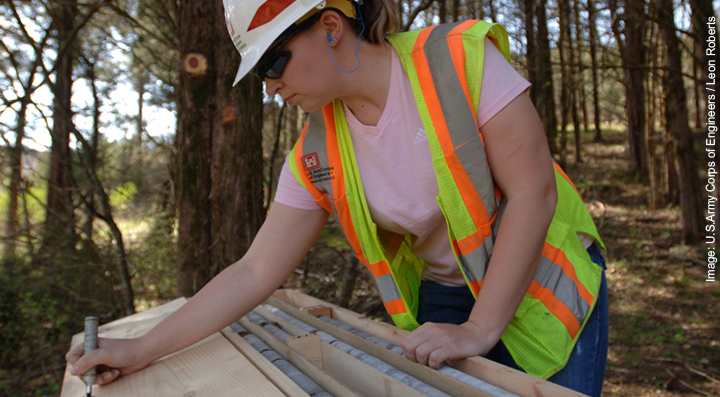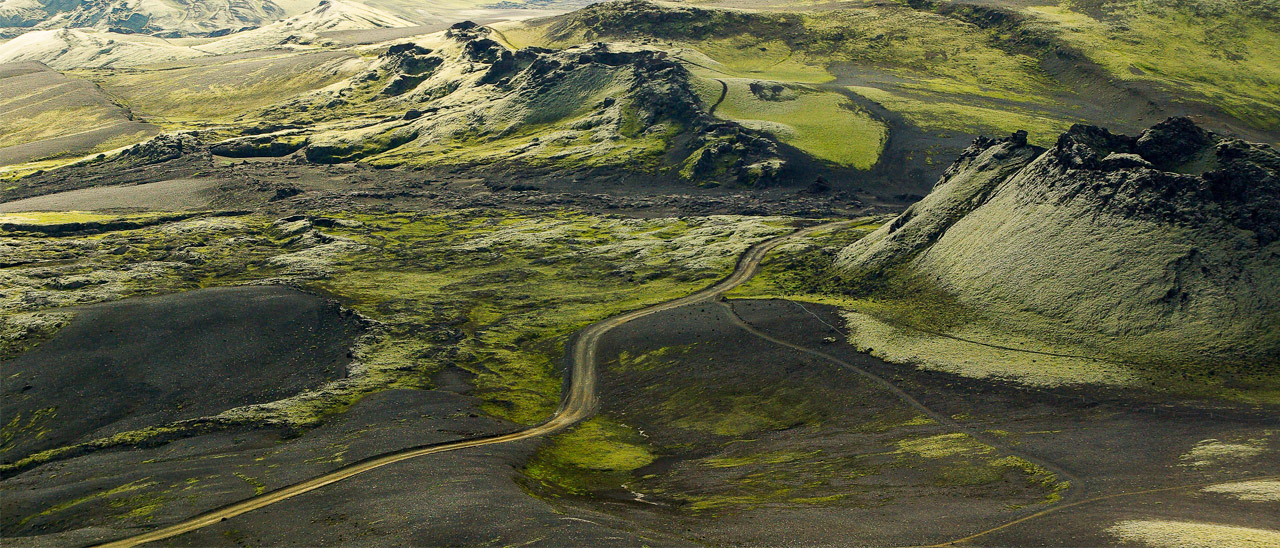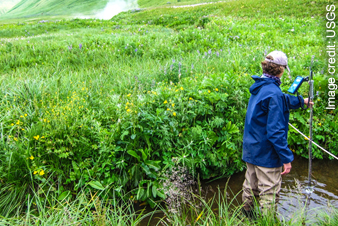Engineering Geology
Engineering geologists are involved in processes that modify surface and sub-surface geology for the built environment. They may also be involved in the related disciplines of engineering geophysics, hydrogeology and mineral exploration.
Many work for engineering consultancy companies. They oversee particular geological aspects of wider projects and are critical to the development of a conceptual ground model for a given site.

 Roles & Career Profiles
Roles & Career Profiles
Examples of roles for engineering geologists include:
 |
|

Offshore Geotechnical Engineer |

Engineering Geologist |

Geotechnical Engineer |

Site Investigation Engineer |

Engineering Geologist (Mining) & Royal Engineers reservist |
|
 Geoscience Areas
Geoscience Areas
Engineering geology encompasses a diverse range of geological disciplines, and those employed in the sector will utilise knowledge of and possibly specialise in:
- Natural hazards (rock failure/stability and seismicity)
- Hydrogeology
- Structural geology
- Near Surface Geophysics
- Rock mechanics / Geomechanics
- Geomorphology / Surface Processes
- Petrology (and its engineering significance e.g. Rock properties)
- Remote Sensing – to assist with field mapping
- Geographical Information Systems
- Environmental Geology & Contamination (or Geochemistry)
- Potential construction material sources – cross-over with resource geology
- Field techniques – mapping, sampling
Other skills such as effective communication and report writing, and the ability to evaluate the reliability of data from different sources, are also important.
 How do I get there?
How do I get there?
Engineering Geologists usually have a Postgraduate Masters in Engineering Geology, Geotechnical Engineering, Foundation Engineering, Hydrogeology, Soil Mechanics, Rock Mechanics or other related subjects. Many take these courses following a civil engineering undergraduate degree, but a Geology undergraduate degree is also a common background.
 How to get ahead
How to get ahead
- Ensure your degree and/or modules are tailored towards the sector
- Relevant work experience will be extremely useful when it comes to applying for a job.
- Many of the engineering consultancy firms specialise in aspects of designing projects, so ensure you are up to date with civil engineering/geological engineering projects.
| Watch Video |
| Watch Video |



